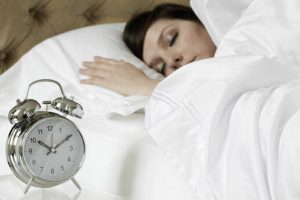|
Only have a minute? Listen instead
Getting your Trinity Audio player ready...
|

For Dr. Frank Robert Glatz, an ear, nose and throat specialist at South Texas Health System, a new device that is implanted in one’s throat will change the lives of those struggling with sleep apnea.
Sleep apnea is when airways are narrowed due to conditions such as obesity, large tonsils or even changes in hormone levels, according to the National Institute of Health.
Glatz recently performed a new treatment known as the Inspire Sleep Apnea Innovation, which implants a device just beneath the tissue on the throat and placed on the hypoglossal nerve that will help lift the tongue forward while one sleeps using electrical stimulus.
STHS says it’s the first time the procedure was performed south of San Antonio.
“Because it’s on the nerve, it takes such a tiny amount of electrical stimulus to activate that nerve, the patients really almost don’t even know that it’s there,” Glatz explained.
With this new device, patients would only have to carry a small remote that will set the device to activate 30 minutes after one falls asleep, rather than using a continuous positive airway pressure, or CPAP machine. The doctor said the remote will eventually be replaced with your cellphone.
Prior to the new device, Glatz explained that treatment would include weight loss or a CPAP machine to help keep airways clear. However, a CPAP can cause discomfort for some patients while others who have a nasal or sinus structure abnormality can find it impossible to use this type of treatment, according to an STHS news release.
With the Inspire device, Glatz is now able to provide patients with a less invasive form of treatment that will allow them to get overall better sleep by ensuring one’s airways remain open throughout the night.
“Seeing the results and seeing how easy these implants are, I think this could be a game changer for a lot of people with sleep apnea,” Glatz said. “I just feel like there is so many people in the Valley that could benefit from this.”
According to the American Medical Association, around 30 million people across the U.S. have sleep apnea; however, many are unaware of their condition.
In fact, only about 6 million people are diagnosed with sleep apnea.
Symptoms of sleep apnea
>> Feeling tired or exhausted when waking up
>> Daytime sleepiness
>> Snoring, which is the most common but doesn’t occur in all cases
>> Mood changes such as developing depression or anxiety
>> Disruptions in brain function such as memory loss or trouble concentrating
>> Waking up repeatedly in the middle of the night
>> Pauses in breathing while asleep that others witness
>> Unusual breathing patterns
>> Insomnia
>> Night sweats and feeling restless at night
>> Sexual dysfunction
>> Waking up feeling short of breath or like you’re choking
>> Headaches, especially when waking up
Glatz explained that oftentimes sleep apnea can lead to other conditions such as increased stress levels, increased blood pressure, heart disease, type 2 diabetes or even depression and anxiety.
“Really taking care of your sleep is of critical importance,” Glatz said.
Those who wish to schedule an appointment with the STHS Sleep Center can call (956) 213-0403. For more information about sleeping disorders, visit the STHS Edinburg website.




